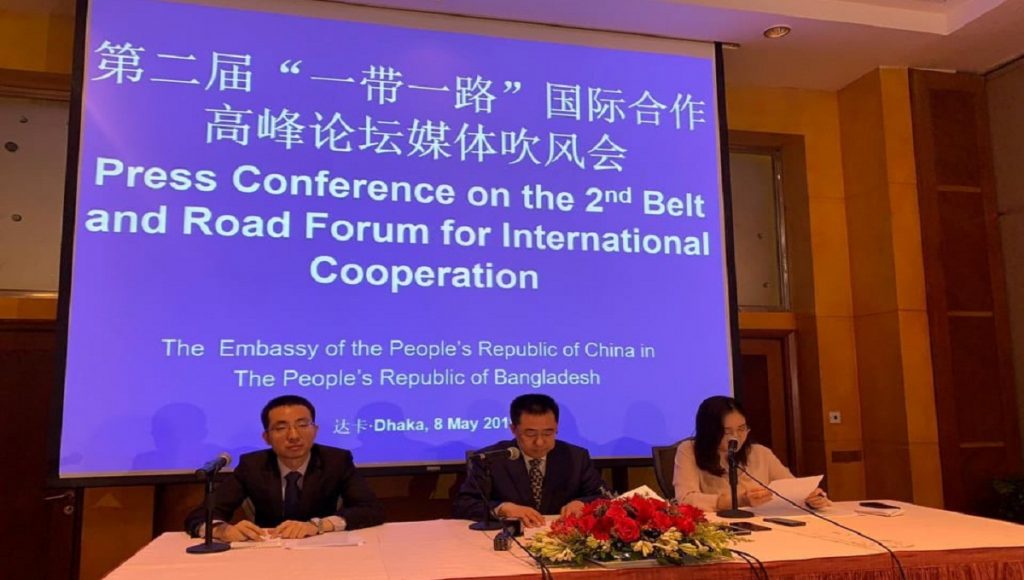Dhaka, May 8 (UNB) – Chinese Ambassador to Bangladesh Zhang Zuo on Wednesday defended its Belt and Road Initiative (BRI) against charges that it creates debt traps saying the BRI partners will now have a better understanding.
He said China and other participating parities have formulated a “debt crisis analysis framework” and this will be very helpful for project financing and risk control.
“We follow a sustainable development pattern in our cooperation projects. We’ve adopted very fair and non-discriminatory policies,” said Ambassador Zuo while responding to a question.
He said the major players and partners of the BRI will have better assessment whether it is a debt trap or not involving its loan for projects under mega infrastructure project
China is helping Bangladesh implement 11 projects, including the Padma Bridge and Karnaphuli Tunnel under the BRI with 2-3 percent interest rate.
Briefing the media and think tanks on the outcomes of second Belt and Road Forum for International Cooperation (BRF), the envoy said the BRF achieved a series of remarkable outcomes that were held from April 25 to 27 in Beijing.
Ambassador Zuo said Bangladesh is among the first South Asian countries that responded to the BRI.
He said the BRI has become a road of opportunities and development for the people of Bangladesh and China.
“Standing on a new starting point, China and Bangladesh need to play a leading role of head-of-state diplomacy, strive to enhance all-round connectivity that produces multiplying effects in infrastructure development, industrial clustering, economic growth and people’s wellbeing, and deepen our practical cooperation under the BRI,” said the Ambassador.
He said the BRI is a long-term project and a common cause for global partners. “China would like to work with all parties to promote the high-quality Belt and Road cooperation in the spirit of an architect refining the blueprint.”
Ambassador Zuo said they are willing to, together with cooperative partners, sow the seeds and reap the fruits.
“We’ll work to bring more benefits to people around the world, and make more contributions to jointly build a community with a shared future for mankind. We hope our friends from the media and think tanks could continue to lend your support to building the BRI,” he said.
He highlighted six major outcomes summarised from President Xi Jinping’s keynote speech and the first one was drawing the blueprint for future cooperation actions.
The second one, he said, promoting a global partnership of connectivity. So far, 127 countries and 29 international organisations have signed Belt and Road cooperation documents with the Chinese side.
During the forum this year, relevant countries and international organisations also signed over 100 multilateral and bilateral cooperation documents with the Chinese side in fields, including transportation, taxation, trade, auditing, science and technology, culture, think tank, and media, said the Chinese envoy.
Focusing on deepening practical cooperation, building long-term supporting mechanisms and committing to reform and opening up to show China’s sense of responsibility were among the outcomes, he said.
The Ambassador said President Xi Jinping likened the Belt and Road initiative to the two wings of a soaring Asia.
He also stressed that the main partners of the Belt and Road Initiative are China’s neighbors, and they will be the first to benefit from it.
President and CEO of the Bangladesh Enterprise Institute (BEI) Ambassador Farooq Sobhan, Bangladesh Institute of Peace and Security Studies (BIPSS) President Maj Gen (retd) ANM Muniruzzaman, Centre for Policy Dialogue Executive Director Dr Fahmida Khatun and senior officials of the Chinese Embassy in Dhaka were also present.




